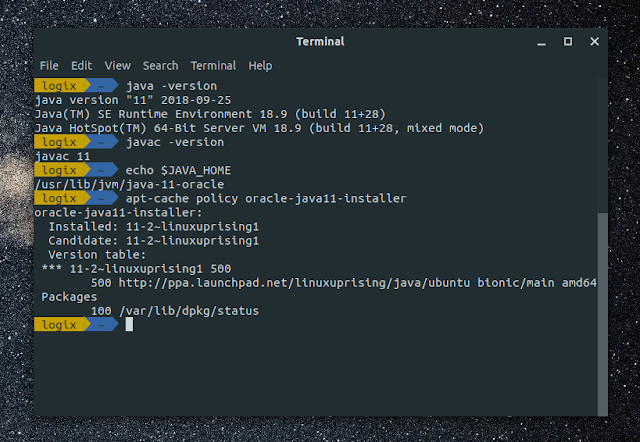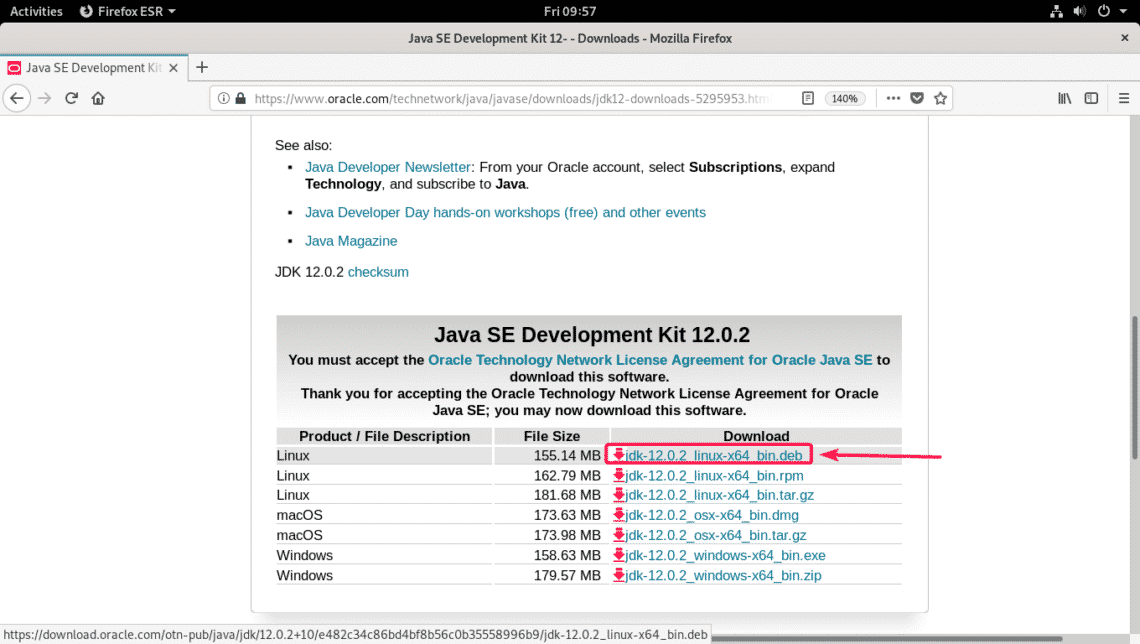

- #DEBIAN INSTALL OPENJDK 11 HOW TO#
- #DEBIAN INSTALL OPENJDK 11 UPDATE#
- #DEBIAN INSTALL OPENJDK 11 PASSWORD#
- #DEBIAN INSTALL OPENJDK 11 DOWNLOAD#
#DEBIAN INSTALL OPENJDK 11 HOW TO#
In this tutorial, we will show you how to set up Hadoop single node cluster or pseudo-distributed mode.

Hadoop can be configured to run in a single node or multi-node cluster. Save the file and exit, then run the command below to activate the newly added environment variables. export JAVA_HOME=/usr/lib/jvm/java-11-openjdk-amd64Įxport HADOOP_COMMON_LIB_NATIVE_DIR=$HADOOP_HOME/lib/nativeĮxport HADOOP_OPTS="=$HADOOP_HOME/lib" Insert the following lines into the file. Now, let’s edit /opt/hadoop/.bashrc $ nano /opt/hadoop/.bashrc $ tar -xzvf hadoop-3.2.3.tar.gz -C /opt/hadoop -strip-components=1īefore continuing to the next steps, make sure JAVA_HOME is pointing to the correct directory, you can check this by listing /usr/lib/jvm $ ls /var/lib/jvm
#DEBIAN INSTALL OPENJDK 11 DOWNLOAD#
Let’s log in as user ‘hadoop’ to download and extract it, so we do not need to change the file and directory permission. You can go to their download page at to check the more recent version if any. Download and Install HadoopĪt the time of writing this article, the latest stable version of Hadoop is version 3.3.2. Java should be installed now, you can check and verify it by invoking this command: $ sudo java -version Step 4. $ sudo apt install default-jdk default-jre -y Let’s run this command below to install the default JDK for Java from the repository. Hadoop is written in Java, so we require Java in our system to be able to run Hadoop. Let’s exit from user ‘hadoop’ and then continue to the next step.
#DEBIAN INSTALL OPENJDK 11 PASSWORD#
You should be able to log in to SSH without a password now. $ cat ~/.ssh/id_rsa.pub > ~/.ssh/authorized_keys Next, let’s add hadoop’s public key to the authorized key file, to allow user ‘hadoop’ to log in to the system without a password and only use the SSH key. SHA256:QYHlb6Is9n05OtnR+6i71t4MZeN9gVqGVCoa28aiUXg key's randomart image is: Your public key has been saved in /opt/hadoop/.ssh/id_rsa.pub Your identification has been saved in /opt/hadoop/.ssh/id_rsa ssh-keygen -t rsaĮnter file in which to save the key (/opt/hadoop/.ssh/id_rsa):Įnter passphrase (empty for no passphrase): To access the nodes without a password, we can generate SSH key and copy the public key to the ~/.ssh/authorized_keys file. Hadoop requires ssh access to manage its nodes, whether remote or local nodes. It is not a good idea to run Hadoop as root, so for security reasons, we will create a new system user: $ sudo useradd -r hadoop -m -d /opt/hadoop -shell /bin/bashĪ user ‘hadoop’ has been created, let’s log in as the user. Create a System User and Generate SSH Key
#DEBIAN INSTALL OPENJDK 11 UPDATE#
You can do this by running the following commands: $ sudo apt update -y You should get this output: No LSB modules are available.ĭescription: Debian GNU/Linux 11 (bullseye)īefore starting, you have to make sure that all Ubuntu OS packages installed on the server are up to date.


You can check whether you have the proper Debian version installed on your server with the following command: $ lsb_release -a Additionally, replace “IP_Address” and “Port_Number” with your server’s respective IP address and SSH port number. Replace “root” with a user that has sudo privileges if necessary.


 0 kommentar(er)
0 kommentar(er)
